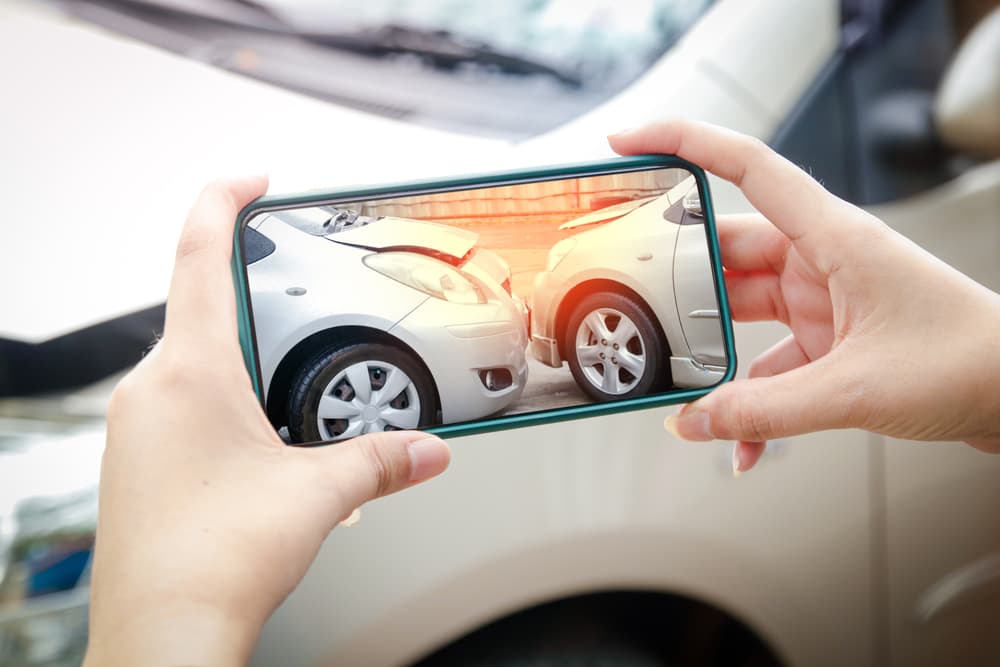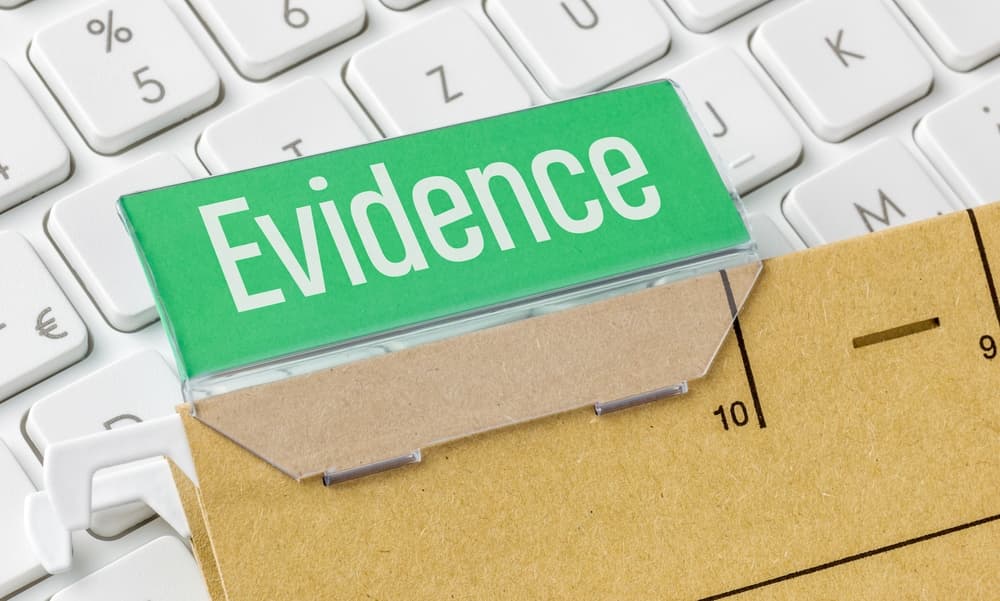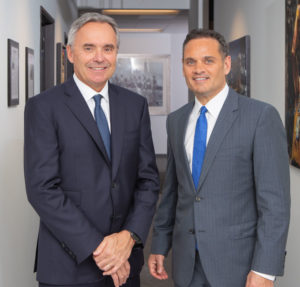What Evidence Might Help My Car Accident Case?
What Evidence Might Help My Car Accident Case?
Even though an injury car accident case is a civil case and not a criminal one, the evidence must still prove that you deserve compensation.
Without evidence establishing who caused or is liable for your car accident and that you sustained injuries and damages, you can’t receive maximum compensation for your car accident case. This is where a Santa Ana car accident lawyer comes in.
Schedule a Free Initial Consultation
Attorneys Help with Collecting Evidence

Evidence is incredibly valuable in a successful car accident injury claim.
You’ll need it to prove the elements of negligence, which include:
- Duty: The at-fault party owed you a duty of care—for example, to drive the speed limit
- Breach of duty: The at-fault party failed to uphold their duty
- Causation: Their breach led to your injuries
- Damages: Your injuries caused compensable damages
A qualified car accident attorney will know what evidence you need to establish how the at-fault party caused your injuries and the extent of your damages.
Attorneys collect and preserve evidence by:
- Contacting witnesses for sworn statements
- Filing formal legal requests, known as subpoenas, to obtain surveillance camera footage
- Running asset checks on the at-fault party
- Requesting medical records
- Hiring expert witnesses if necessary
- Obtaining police or incident reports
The more evidence available supporting your claim, the more likely you will receive the compensation you deserve.
Proving Compensatory Damages
Compensatory damages include two categories: economic/special and non-economic/general.
Car accident injury victims can’t just say they suffer damages from the car accident and expect to receive compensation. Personal injury laws in all states require that they prove how another person’s or party’s actions led to their injuries and damages.
More specifically, they must prove that:
- They suffered damages
- Their damages were the result of the other party’s negligence
- The value of their damages
In a car accident case, you must prove your case by a preponderance of the evidence. In other words, you must establish that your version is more likely to be true than not to be true.
Special Damages
Special damages are usually simple to prove because there is a paper trail of bills or other supportive documentation. Retain your medical bills, statements, and receipts for out-of-pocket expenses such as prescriptions, durable medical equipment, or chiropractic care.
Your lawyer can prove how much the at-fault party owes for your lost income with a statement from your employer detailing:
- Your normal pay rate
- How many hours you missed
- Your total amount of lost income resulting from your injury
If applicable, your employer should discuss lost opportunities for overtime and any paid vacation or sick leave, sometimes known as PTO (paid time off), you used because of your injury.
Even if you’re self-employed, your attorney can usually still substantiate your lost income. You might also need tax returns, profit and loss statements, and evidence of lost assignments after your injury to demonstrate your financial losses. Any documentation showing lost income after your car accident can help support your claim.
If you have damaged property, save receipts or written estimates for the out-of-pocket expenses for repairs or replacements.
The Challenge of Proving Non-Economic/General Damages
Non-economic or general damages compensate you for pain and suffering.
However, they can also include:
- Scarring and disfigurement
- Mental anguish
- Emotional distress
- Humiliation
- Loss of enjoyment of life
- Loss of consortium
General damages are certainly more challenging to establish as there might not be concrete evidence to prove their existence. Insurance companies are always suspicious of non-economic damages since they don’t have any reliable way to measure someone’s suffering or distress.
However, non-economic damages are just as crucial to a car accident claim as special damages. The impacts of general damages can be permanent and even more challenging for car accident victims to deal with than special damages.
Evidence in support of your general damages might include testimony from:
- Yourself
- Your treating doctors
- A mental healthcare provider
- Family, friends, or co-workers who knew you before the accident
Using other cases similar to yours as examples is sometimes helpful in receiving fair compensation for general damages. Showing what victims of similar accidents and injuries receive for their general damages can establish a starting point for negotiating a settlement with an insurance adjuster. Your car accident attorney will have experience doing this and can employ such a tactic within your claim.
Types of Evidence in a Car Accident Claim

Law Enforcement’s Accident Report
After a motor vehicle accident, call the local law enforcement agency so they can come to the scene and draft a report. In most cities and states, this action is mandatory if there are any injuries, deaths, or even property damage.
If you did not report the accident immediately, you can contact the police department and do so later.
The police report can be persuasive to insurance companies. Law enforcement officers should survey the scene, take pictures and measurements, and speak to all involved parties and any available witnesses. They use all of this evidence to conclude what led to the accident, how it occurred, and who is responsible.
If anyone violated the law, such as speeding, driving carelessly, or drunk driving, that should also be in the accident report. This can be evidence to prove their breach of duty.
Once the accident report is complete, which can take some time, you and your attorney can obtain a copy. This report provides credible facts to support a car accident claim. Police reports can help establish who is at fault and why and that you suffered injuries.
Medical Bills and Statements
Receiving compensation for your claim requires a financial paper trail. The insurance company won’t reimburse you if you or your attorney on your behalf can’t prove your injury costs.
Types of bills victims frequently overlook as evidence include:
- Diagnostic bills from labs, radiology departments, and radiologists
- Ambulance bills, if you received emergency care
- Hospital bills, including those for surgery or inpatient stays
- Ancillary care such as chiropractors and physical or occupational therapists
- Over-the-counter medication and prescription receipts, including the out-of-pocket price
- Medical device receipts for crutches, braces, or wheelchairs
- Mental health care you sought after the accident
Receipts for replacement services also count as evidence to receive compensation.
For example, if you cannot care for your children or participate in routine housekeeping or yard care activities, you must hire someone to complete these tasks for you. Retain proof of any transportation or food expenses related to receiving medical care.
Medical Records
Without medical records, it’s impossible to link your injuries to your car accident. You need medical records to establish a reason for your medical expenses. Follow the protocol of your medical providers to receive your records.
Under the law, you must consent to obtain copies of your medical records or to send them to a third party, such as a car insurance company or law firm. Your car accident attorney can obtain these records once you sign a consent.
Nearly every party sending medical bills should have medical records about your injuries. It might help to list your medical care, surgeries, therapies, and treatments since the accident to ensure you and your attorney collect all necessary medical records for evidence.
Photos and Videos
Pictures and videos are essential pieces of evidence in your claim. Today’s technology makes it possible to document accidents in this valuable way.
Whenever possible, get pictures or videos at the car accident scene. Include any notable conditions in the area, such as a large pothole or a tree blocking the view from an intersection.
Take pictures and videos of your injuries as soon as possible after the accident, as they heal, and after they heal. Pay attention to the light conditions and use your cell phone’s camera settings to produce an optimal photo. Photographic evidence of your property damage, such as the damage your vehicle sustained or your damaged wedding ring, is also helpful.
Your Notes
Detailed notes can make a significant difference in a car accident case. A legal notepad, journal, or even a simple notebook will work. Alternatively, you can also type your notes.
Make a thorough narrative of the accident from your perspective as soon as possible. Waiting too long to document your account can cause you to forget details or recall them incorrectly.
In addition, keeping a daily journal of your pain, discomfort, and how your injuries have impacted your life can also help support your claim. Be sure to include any activities, events, or hobbies you have had to miss out on because of your injuries.
Reliable Witnesses Provide Car Accident Case Evidence
In a personal injury case, there are two types of witnesses. One is an eyewitness or a lay witness at the scene when the injury occurred. An eyewitness to an event often knows facts that may not be available in any other way, such as what events led up to an accident.
An eyewitness to a car accident can be another driver, passenger, passerby, construction worker, or someone in the area for another reason. If possible, injured individuals can help with their claim by finding witnesses to their car accident and getting their contact information.
In some car accident cases, police officers or paramedics who came to the scene of the accident can also be witnesses.
The second type of witness is an expert witness. They provide expert knowledge about the case and can clarify the facts about your case or injuries.
For instance, your car accident attorney may use medical expert witnesses to prove your injuries or their value. They may also use accident reconstructionists to help demonstrate how the car accident occurred and who is liable.
Depending on the extent of the car accident and your injuries, your case may or may not benefit from an expert witness. Your lawyer can determine this. However, a good eyewitness can be vital to the success of your claim.
Witness Statements
Whenever possible, the witness should provide their statement immediately after the incident or as soon as possible. A witness’s memory can quickly fade as time moves on. Sometimes, their memory can also fill in blanks with details they didn’t observe.
However, resolving a disputed car accident injury claim can take months or even years. Providing an actual statement helps the witness recall what happened. Statements can refresh their future recollection and allow them to give true, accurate, and precise facts about what they saw.
A witness statement offers a detailed explanation:
- What they observed
- Specific facts about the accident
A witness statement provides another view of what happened, helps those investigating the accident, and can refresh the witness’ memory if they need to state or testify about what happened months or years after the car accident.
What Witnesses Should Avoid When Giving Statements
There are several things effective witnesses should avoid when they give statements.
For example:
- Guesses – Anything not personally observed is a guess. A witness shouldn’t guess, but they can write or talk about anything they observed.
- Opinions – It’s not up to the witness to decide what happened. A statement shouldn’t include arguments, personal opinions, or draw conclusions. A witness should only write or talk about the facts.
- Feelings – A witness statement must remain neutral. Feelings about the outcome of the claim or sympathy for the victim shouldn’t be in a witness statement.
Guesses, personal opinions, or attitudes about the victim, the liable party, law enforcement, or anyone involved in the accident don’t add reliable or valuable information to the claim.
Injured in a Car Accident? Call a Skilled Car Accident Attorney for Help Today

Greg Bentley & Keith More, Santa Ana Car Accident Lawyer
Evidence can prove all elements of negligence in a car accident claim. A skilled car accident attorney can help ensure you have the necessary evidence to prove your claim and maximize your compensation.
Seek legal help as soon as possible to preserve your rights and options. The sooner your lawyer can collect evidence supporting your car accident injury claim, the better. Your Santa Ana personal injury attorney can begin gathering evidence immediately, taking the burden off you so you can focus on healing from your injuries.


